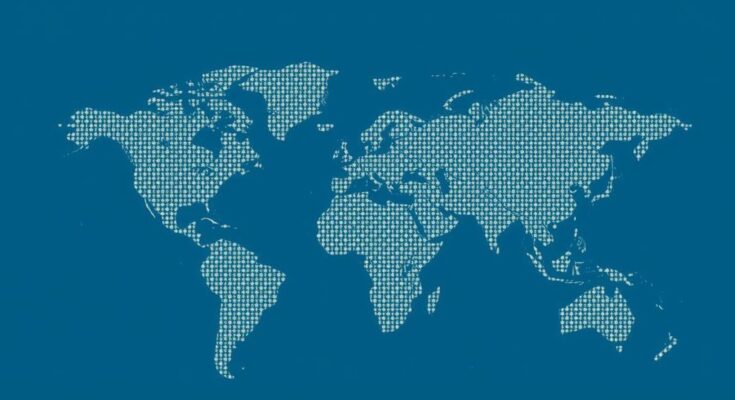A coalition has urged World Bank President Ajay Banga to condemn the Cambodian government’s crackdown on human rights organizations CENTRAL and Equitable Cambodia. Their reprisals against these groups are linked to their advocacy for labor rights in World Bank-supported projects. The government has intensified its actions against civil society, threatening the operational space for NGOs in Cambodia, a trend that demands immediate attention from international bodies like the World Bank.
A coalition of organizations has called upon World Bank President Ajay Banga to denounce the Cambodian government’s increasing hostility towards human rights advocates and retaliations against those involved in World Bank projects. The recent months have seen a marked intensification of government oppression against dissenting voices, notably targeting the prominent human rights groups CENTRAl and Equitable Cambodia. These attacks are directly tied to their efforts to uphold labor and human rights in World Bank-supported initiatives. CENTRAL, a leading labor rights organization in Cambodia, faces a crackdown following its critical report on a World Bank initiative aimed at improving garment factory conditions. The Ministry of Interior initiated a national security audit against CENTRAL shortly after the report’s release, which identified failures in the Better Factories Cambodia program to protect workers’ rights. This move, perceived as punitive by several international organizations, highlights the dangers faced by civil society in delivering vital rights assessments. Eang Vuthy, director of Equitable Cambodia, has also faced severe repercussions, including criminal charges related to his advocacy efforts on behalf of communities harmed by development projects. Recently, he was summoned to court on charges that could result in jail time, illustrating the perilous environment for human rights defenders. This attack on Eang is seen as retaliation for his work supporting communities affected by World Bank-financed projects. The wider context of these developments reflects a systematic closing of civil society space in Cambodia, exacerbated by repressive laws enacted since 2015. Following a period of burgeoning democracy post-1991, the Cambodian government has increasingly targeted independent organizations, silencing critical voices. Since the rise of Prime Minister Hun Manet, the situation has deteriorated further, threatening the operation of remaining NGOs and undermining fundamental human rights. International institutions, particularly the World Bank, play a crucial role in addressing these attacks. The World Bank Group, with its policy against retaliation, is urged to act decisively to protect civil society actors like CENTRAL and Equitable Cambodia. Before any new investments are made in the country, it is vital for the Bank to ensure that reprisals against these organizations cease, allowing them to operate freely without fear of harassment.
The situation in Cambodia has become increasingly dire for civil society, particularly regarding the government’s aggressive actions against human rights organizations. Over recent years, there has been a troubling pattern of repression against citizens and groups advocating for rights. The World Bank’s involvement through various projects adds a layer of complexity to these dynamics, as local organizations face retaliation for holding the Bank accountable. International observers are alarmed by these developments, which threaten the very fabric of Cambodia’s once-vibrant civil society.
In sum, the mounting attacks on Cambodian civil society organizations CENTRAl and Equitable Cambodia highlight an alarming trend towards increased repression. The World Bank’s role is pivotal, as its policies against retaliation must be applied to ensure that human rights defenders can continue their vital work unimpeded. Without decisive action, the hard-won gains in Cambodia’s democratic space are at risk of vanishing entirely, leaving vulnerable communities without a voice for their rights.
Original Source: www.fidh.org



